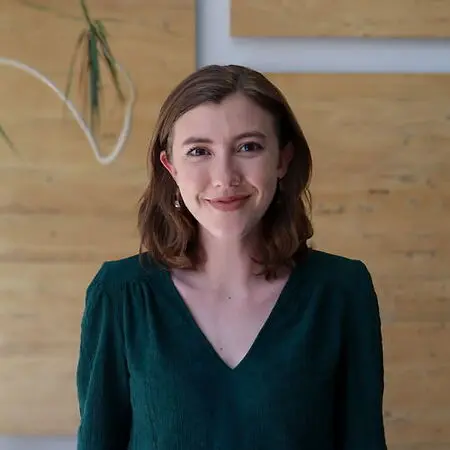Haley V. Hall

Haley Hall is a dynamic and mission-driven sustainability professional currently serving as a Recycling Business Development Specialist at the North Carolina Department of Environmental Quality. In this role, she plays a pivotal part in strengthening North Carolina’s circular economy by supporting recycling businesses and expanding the use of recycled materials in manufacturing. Her work blends technical assistance, market analysis, and business engagement to create sustainable, impactful solutions across the state.
With a strong foundation in environmental science and public service, Haley brings a decade of experience in sustainability coordination, environmental education, and program development. Prior to her role at NC DEQ, she led strategic sustainability initiatives at RTI International, where she supported nature conservation efforts, managed internal sustainability communications, and helped track environmental metrics for corporate reporting. A graduate of North Carolina State University, Haley holds a B.S. in Environmental Sciences and Political Science and is recognized for her collaborative spirit, strong communication skills, and deep commitment to advancing community engagement.
• Power BI: Dashboards for Beginners
• North Carolina State University- B.S.
• Panhellenic Most-Outstanding First Year Woman of the Year
• Kay Yow's Spirit of the Village Award
• TRIO SSS Scholar
• RTI International Employee Spotlight Award
• Sustainability Steward at NC State
• NC State Social and Sustainable Innovation and Entrepreneurship
• Social Innovation Fellows
• Sustainability Alumni-Student Mentorship Program at NC State
What do you attribute your success to?
I succeed by staying mission-driven, testing whether my actions support that purpose, and iterating until they do.
I treat every project as an ongoing experiment: I define a clear purpose, test whether my work is meeting that purpose, learn from results, and iterate until the work aligns with the real need. Instead of going through the motions, iterative confirmation—checking that each step actually advances the mission—keeps me focused, adaptable, and resilient when priorities shift or new information appears. Success follows when commitment to an outcome is paired with humility about methods and a willingness to change course so the mission, not ego or habit, leads the work.
What’s the best career advice you’ve ever received?
"Fall in love with the problem, not the solution."
When you ground your work in a deep understanding of the challenge, you free yourself from attachment to a single answer and create space for better, unexpected solutions. This mindset requires curiosity, persistent listening, and the courage to let go of elegant ideas that don't actually move the needle. Over time, focusing on problems builds discipline, fuels durable innovation, and attracts collaborators who can inform and sustain durable impact.
What advice would you give to young women entering your industry?
Trust your instincts and be patient with momentum: great ideas often need time, the right partners, and the right context to become actionable. Invest in relationships across sectors, listen to the perspectives of stakeholders you aim to serve, and practice reframing challenges so opportunities become visible to others. Persistence matters, but so does strategic timing—cultivate your idea, build allies, and wait for the alignment that turns aspiration into measurable change.
What are the biggest challenges or opportunities in your field right now?
Competing priorities between immediate climate action and widespread knowledge gaps about sustainability create both urgency and confusion. The real opportunity is building shared frameworks and commonly accepted measures for impact and success so diverse actors can collaborate and scale what works.
It’s easy to feel the fight is lost, yet countless small innovations and steady practitioners are creating real progress; the concept of “invisible sustainability” reminds us that much of the meaningful work happens quietly and incrementally around the world. Our task is to highlight those successes, standardize measurement, and connect people so incremental wins become systemic change.
What values are most important to you in your work and personal life?
I lead with intentionality: I choose actions that align with long-term purpose rather than reaction. I practice empathy for others and for myself, recognizing that progress happens through imperfect people doing their best. I favor a restorative mindset that focuses on improving and repairing systems and relationships rather than constantly replacing them. Meeting people where they are—finding shared starting points—creates trust and opens pathways to sustained improvement.